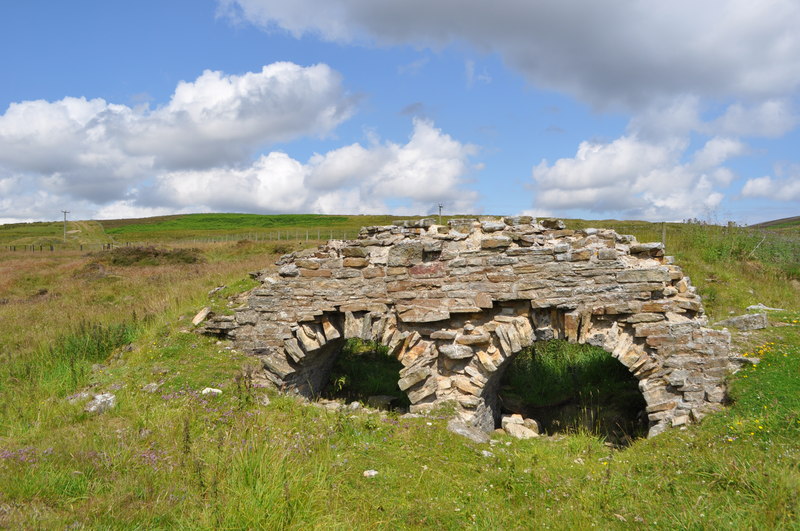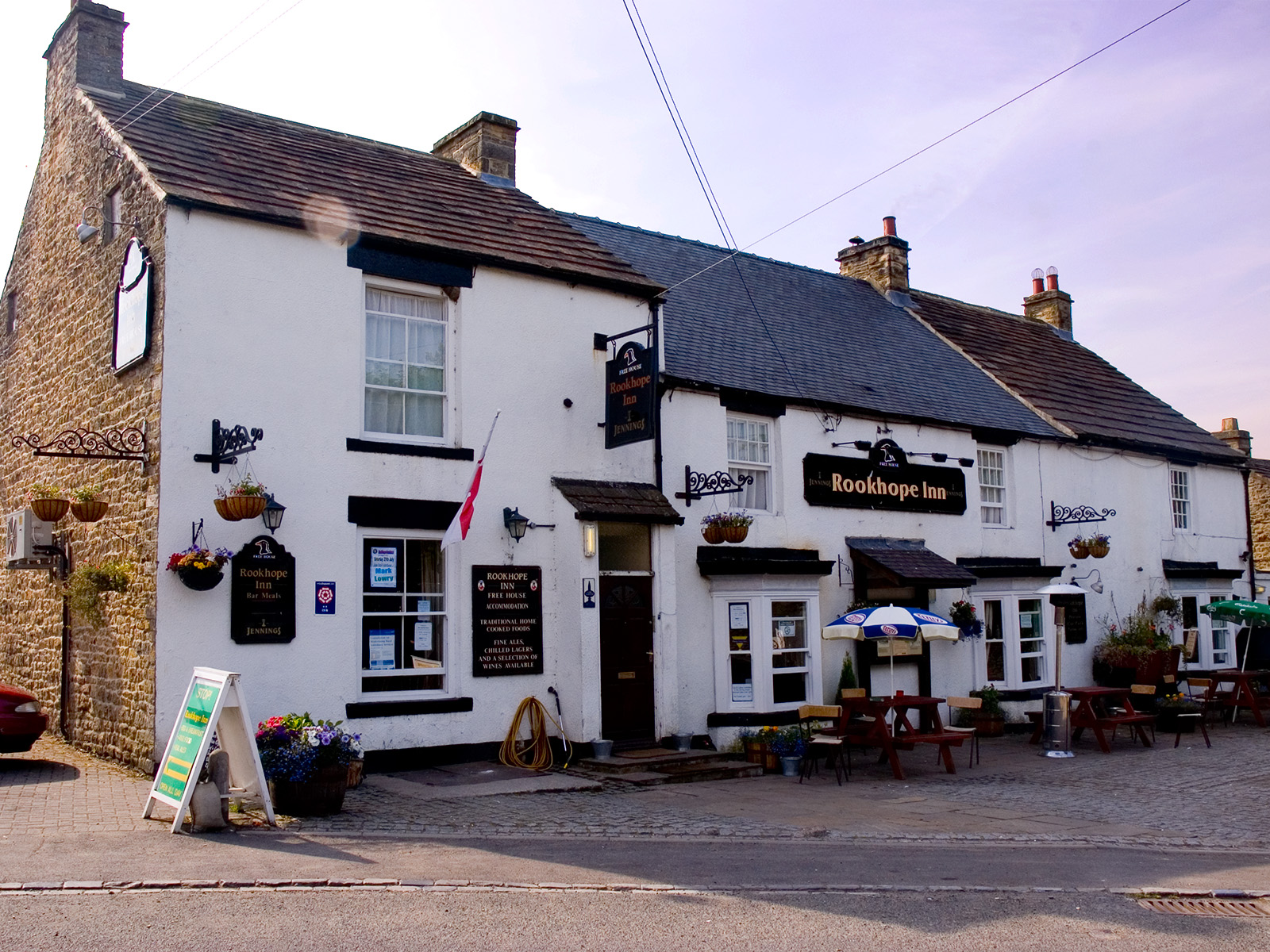Rookhope on:
[Wikipedia]
[Google]
[Amazon]
Rookhope is a village in the
 A local landmark is the Rookhope Arch at Lintzgarth, a few hundred yards west up the valley; one of the few remaining parts of the Rookhope Chimney. This "horizontal" chimney (parallel to the ground, which actually rises steeply to the moors) was used to carry poisonous flue gases from the Rookhope lead smelting works up onto the high moor. Periodically, lead and silver carried over in the gases and deposited in the chimney were dug out and recovered, rather than going to waste.
A local landmark is the Rookhope Arch at Lintzgarth, a few hundred yards west up the valley; one of the few remaining parts of the Rookhope Chimney. This "horizontal" chimney (parallel to the ground, which actually rises steeply to the moors) was used to carry poisonous flue gases from the Rookhope lead smelting works up onto the high moor. Periodically, lead and silver carried over in the gases and deposited in the chimney were dug out and recovered, rather than going to waste.

NorthEastLife: WH Auden Walk – Rookhope, Weardale
(with photo gallery) In his poem ''New Year Letter'' (1941) he wrote that it was in Rookhope that he first became aware of himself as an individual: In this poem he refers to dropping a pebble down a mine-shaft on top of neighbouring Bolt's Law.
In and Around the former lead mining village of Rookhope; ''and'' Rookhope fields & fells: A mineral valleys project walk
{{authority control Villages in County Durham Stanhope, County Durham
civil parish
In England, a civil parish is a type of administrative parish used for local government. It is a territorial designation which is the lowest tier of local government. Civil parishes can trace their origin to the ancient system of parishes, w ...
of Stanhope, in County Durham
County Durham, officially simply Durham, is a ceremonial county in North East England.UK General Acts 1997 c. 23Lieutenancies Act 1997 Schedule 1(3). From legislation.gov.uk, retrieved 6 April 2022. The county borders Northumberland and Tyne an ...
, England. A former lead and fluorspar
Fluorite (also called fluorspar) is the mineral form of calcium fluoride, CaF2. It belongs to the halide minerals. It crystallizes in isometric cubic habit, although octahedral and more complex isometric forms are not uncommon.
The Mohs scal ...
mining community, it first existed as a group of cattle farms in the 13th Century. It is situated in the Pennines
The Pennines (), also known as the Pennine Chain or Pennine Hills, are a range of highland, uplands mainly located in Northern England. Commonly described as the "Vertebral column, backbone of England" because of its length and position, the ra ...
to the north of Weardale
Weardale is a dale, or valley, on the east side of the Pennines in County Durham, England. Large parts of Weardale fall within the North Pennines Area of Outstanding Natural Beauty (AONB) – the second-largest AONB in England and Wales. The u ...
. W. H. Auden once called Rookhope "the most wonderfully desolate of all the dales".
In the 2001 census Rookhope had a population of 267.
The village had two public houses
A pub (short for public house) is in several countries a drinking establishment licensed to serve alcoholic drinks for consumption on the premises. The term first appeared in England in the late 17th century, to differentiate private ho ...
, the Rookhope Inn and the Swallow's Rest on the fell surrounding Rookhope but now closed (May 2022), both popular with cyclists on the coast to coast cycling route which runs from Sunderland
Sunderland () is a port City status in the United Kingdom, city and metropolitan borough in Tyne and Wear, England. It is a port at the mouth of the River Wear on the North Sea, approximately south-east of Newcastle upon Tyne. It is the most p ...
on the east coast to Whitehaven
Whitehaven is a town and civil parish in the Cumberland (unitary authority), Cumberland district of Cumbria, England. It is a port on the north-west coast, and lies outside the Lake District National parks of England and Wales, National Park. ...
or Workington
Workington is a coastal town and civil parish in the Cumberland district of Cumbria, England. The town is at the mouth of the River Derwent on the west coast, south-west of Carlisle and north-east of Whitehaven. At the 2021 census the ...
on the West Cumbrian coast of northern England.
The village had a primary school but it was closed in 2024 due to falling pupil numbers.
Travelling by road, Rookhope is to the west of Durham, to the west of Newcastle upon Tyne
Newcastle upon Tyne, or simply Newcastle ( , Received Pronunciation, RP: ), is a City status in the United Kingdom, cathedral city and metropolitan borough in Tyne and Wear, England. It is England's northernmost metropolitan borough, located o ...
, to the north west of Middlesbrough
Middlesbrough ( ), colloquially known as Boro, is a port town in the Borough of Middlesbrough, North Yorkshire, England. Lying to the south of the River Tees, Middlesbrough forms part of the Teesside Built up area, built-up area and the Tees Va ...
and to the east of Carlisle
Carlisle ( , ; from ) is a city in the Cumberland district of Cumbria, England.
Carlisle's early history is marked by the establishment of a settlement called Luguvalium to serve forts along Hadrian's Wall in Roman Britain. Due to its pro ...
.
Mining
Rookhope was once the centre of lead and fluorspar mining in the Dale. The last mine closed in 1999. The shaft head at Grove Rake was recently saved from demolition.Rookhope Arch
 A local landmark is the Rookhope Arch at Lintzgarth, a few hundred yards west up the valley; one of the few remaining parts of the Rookhope Chimney. This "horizontal" chimney (parallel to the ground, which actually rises steeply to the moors) was used to carry poisonous flue gases from the Rookhope lead smelting works up onto the high moor. Periodically, lead and silver carried over in the gases and deposited in the chimney were dug out and recovered, rather than going to waste.
A local landmark is the Rookhope Arch at Lintzgarth, a few hundred yards west up the valley; one of the few remaining parts of the Rookhope Chimney. This "horizontal" chimney (parallel to the ground, which actually rises steeply to the moors) was used to carry poisonous flue gases from the Rookhope lead smelting works up onto the high moor. Periodically, lead and silver carried over in the gases and deposited in the chimney were dug out and recovered, rather than going to waste.
St John the Evangelist church
The original St John's in Rookhope was built in 1822, but at the end of the 19th century it was pulled down and rebuilt in its current position in 1905. The church closed in 2014. It is a Grade IIlisted building
In the United Kingdom, a listed building is a structure of particular architectural or historic interest deserving of special protection. Such buildings are placed on one of the four statutory lists maintained by Historic England in England, Hi ...
.
Governance
Rookhope is in theparliamentary constituency
An electoral (congressional, legislative, etc.) district, sometimes called a constituency, riding, or ward, is a geographical portion of a political unit, such as a country, state or province, city, or administrative region, created to provi ...
of North West Durham, for which Richard Holden is the first Conservative Member of Parliament.
For Local Government purposes it is in the ''Weardale Ward'' of Durham County Council
Durham County Council is the Local government in England, local authority for the non-metropolitan county of County Durham (district), County Durham in North East England. The council is a Unitary authorities of England, unitary authority, bein ...
. For Parish council purposes it is part of Stanhope Parish Council.
Literary references

The Rookhope Ride
''The Rookhope Ride'' is aborder ballad
Border ballads are a group of songs in the long tradition of balladry collected from the Anglo-Scottish border. Like all traditional ballads, they were traditionally sung unaccompanied. There may be a repeating motif, but there is no "chorus" as ...
rescued and noted down by Joseph Ritson
Joseph Ritson (2 October 1752 – 23 September 1803) was an English Antiquarian, antiquary known for editing the first scholarly collection of Robin Hood ballads (1795). After a visit to France in 1791, he became a staunch supporter of the idea ...
from the chanting of George Collingwood of Boltsburn near Rookhope about 1785. The date of the action (a raid) is precise: 6 December 1569, when robbers from Tynedale
__NOTOC__
Tynedale was a local government district in Northumberland, England. The district had a resident population of 58,808 according to the 2001 census. The main towns were Hexham, Haltwhistle and Prudhoe. The district contained part of ...
made a foray into Weardale
Weardale is a dale, or valley, on the east side of the Pennines in County Durham, England. Large parts of Weardale fall within the North Pennines Area of Outstanding Natural Beauty (AONB) – the second-largest AONB in England and Wales. The u ...
.
W. H. Auden
The poetW. H. Auden
Wystan Hugh Auden (; 21 February 1907 – 29 September 1973) was a British-American poet. Auden's poetry is noted for its stylistic and technical achievement, its engagement with politics, morals, love, and religion, and its variety in tone, ...
was familiar with this whole area of the North Pennines and its derelict lead mines, having visited Rookhope at the age of 12 in 1919.(with photo gallery) In his poem ''New Year Letter'' (1941) he wrote that it was in Rookhope that he first became aware of himself as an individual: In this poem he refers to dropping a pebble down a mine-shaft on top of neighbouring Bolt's Law.
References
External links
In and Around the former lead mining village of Rookhope; ''and'' Rookhope fields & fells: A mineral valleys project walk
{{authority control Villages in County Durham Stanhope, County Durham